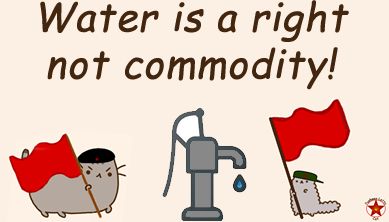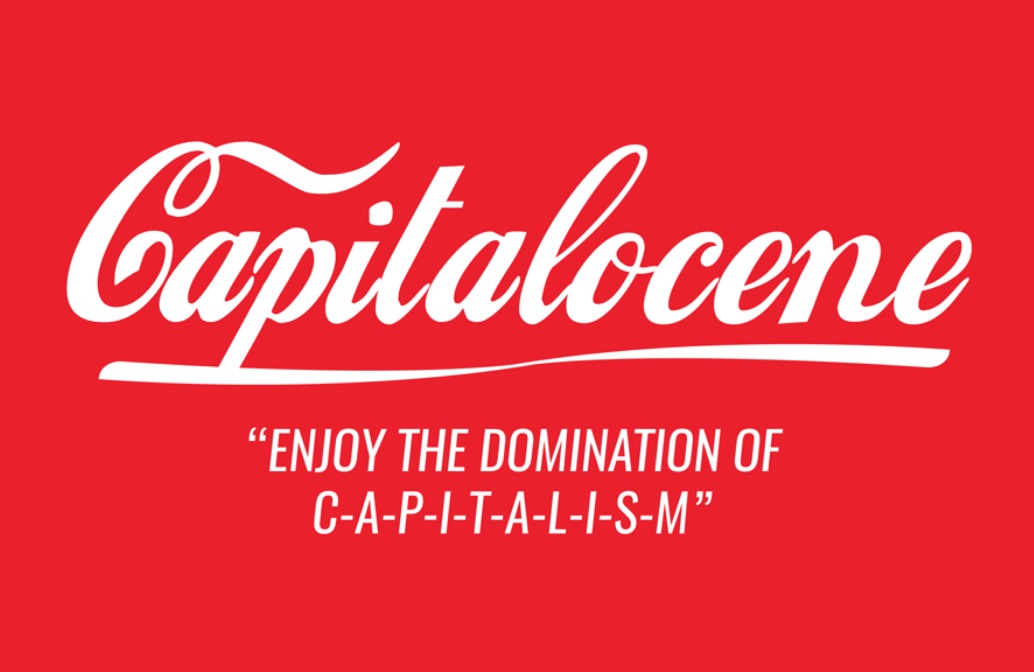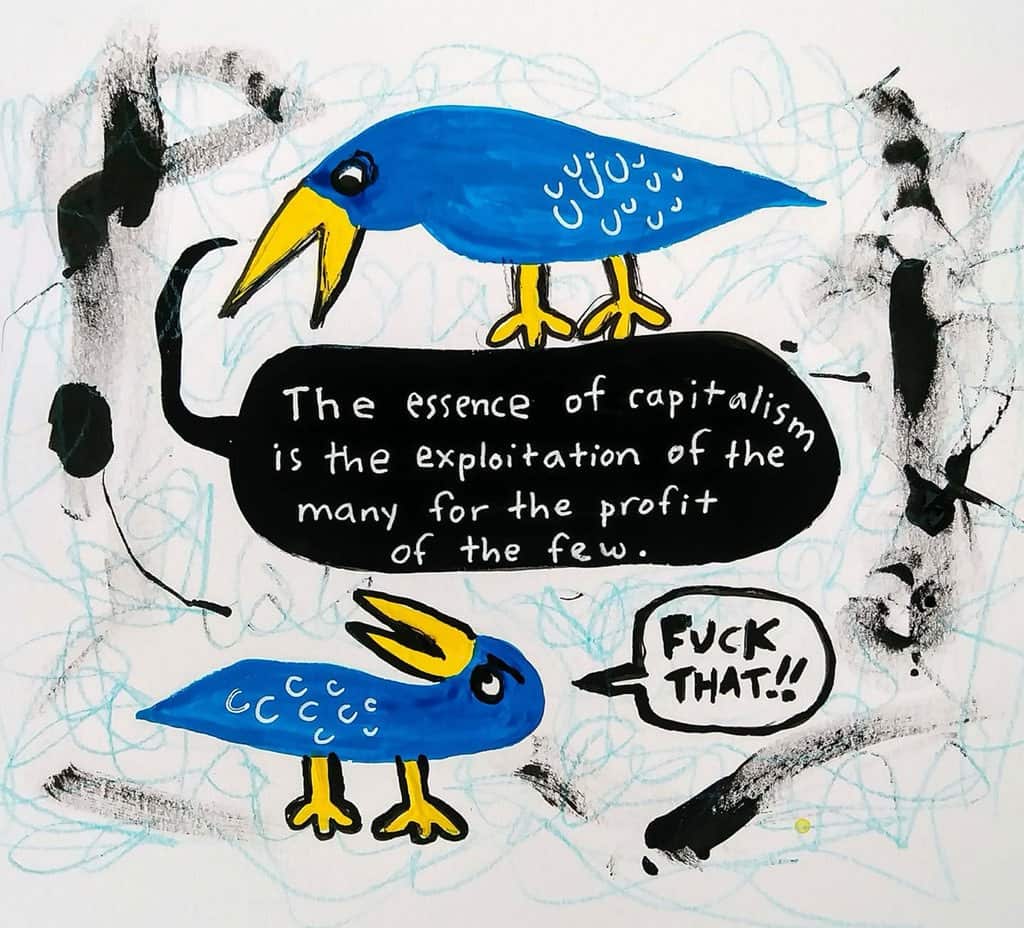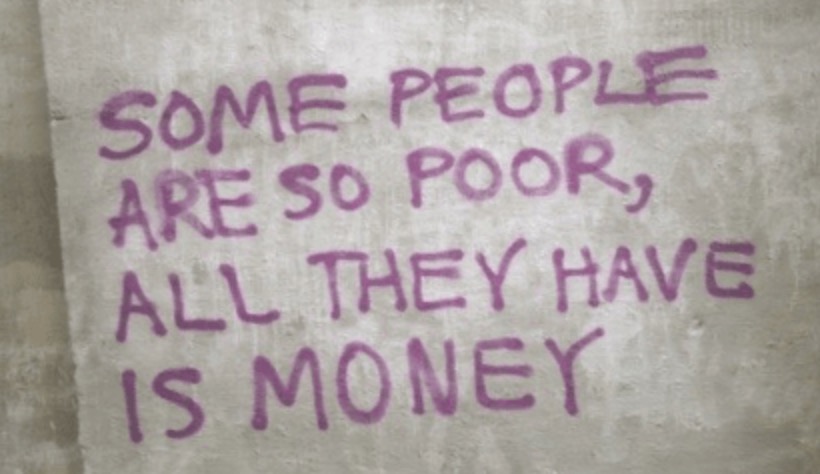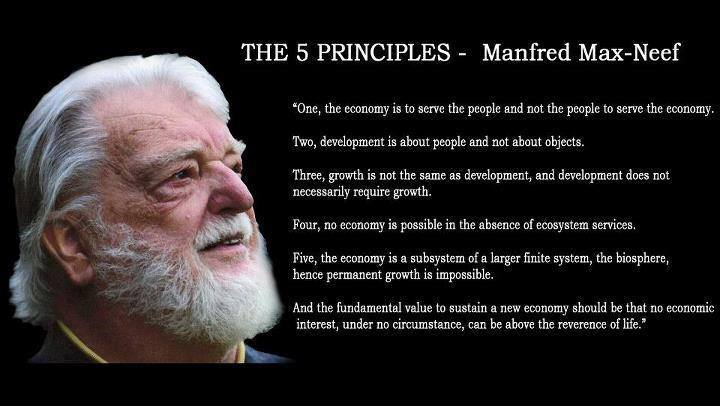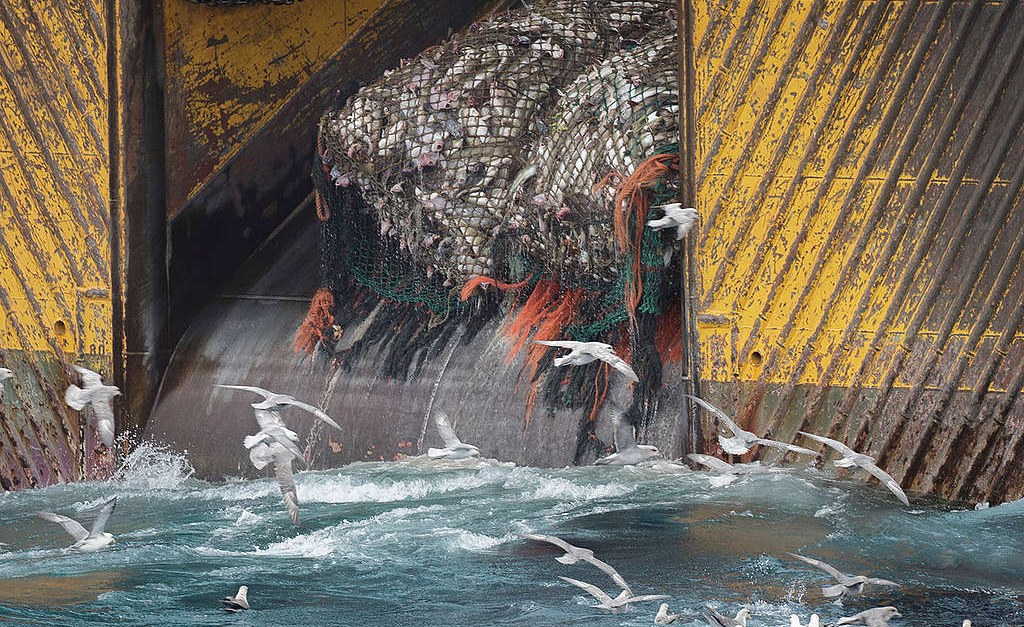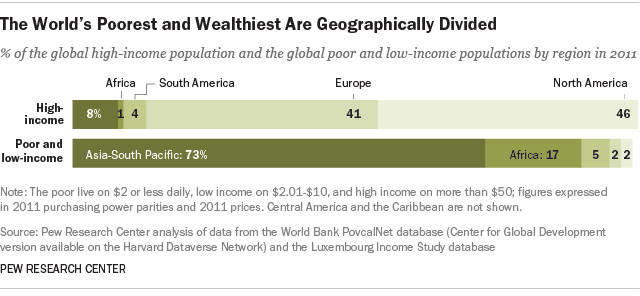tag > Economics
-
Levelized Cost of Energy and Levelized Cost of Storage – 2020 (Lazard)
Lazard’s latest annual Levelized Cost of Energy Analysis (LCOE 14.0) shows that as the cost of renewable energy continues to decline, certain technologies (e.g., onshore wind and utility-scale solar), which became cost-competitive with conventional generation several years ago on a new-build basis, continue to maintain competitiveness with the marginal cost of selected existing conventional generation technologies.
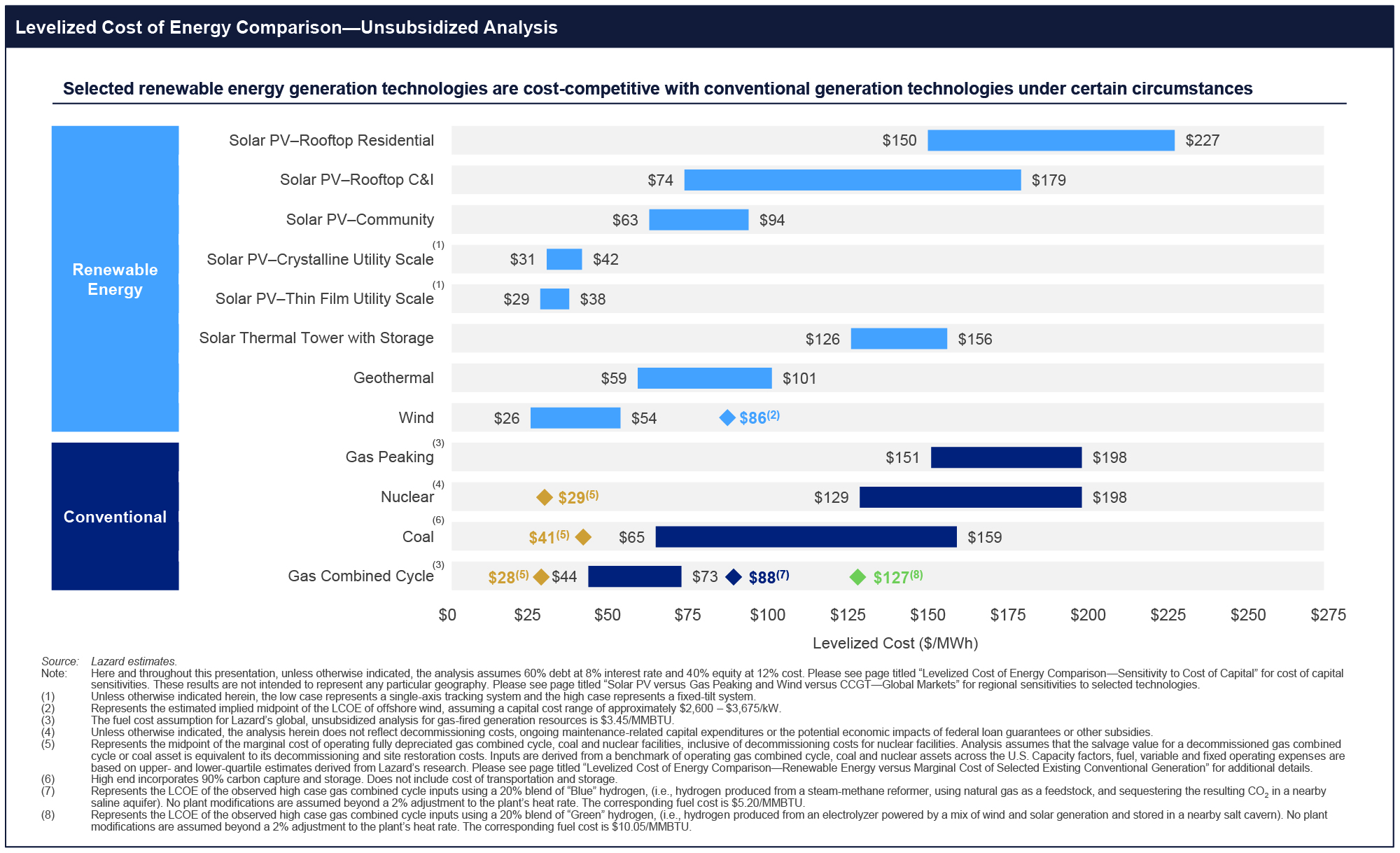
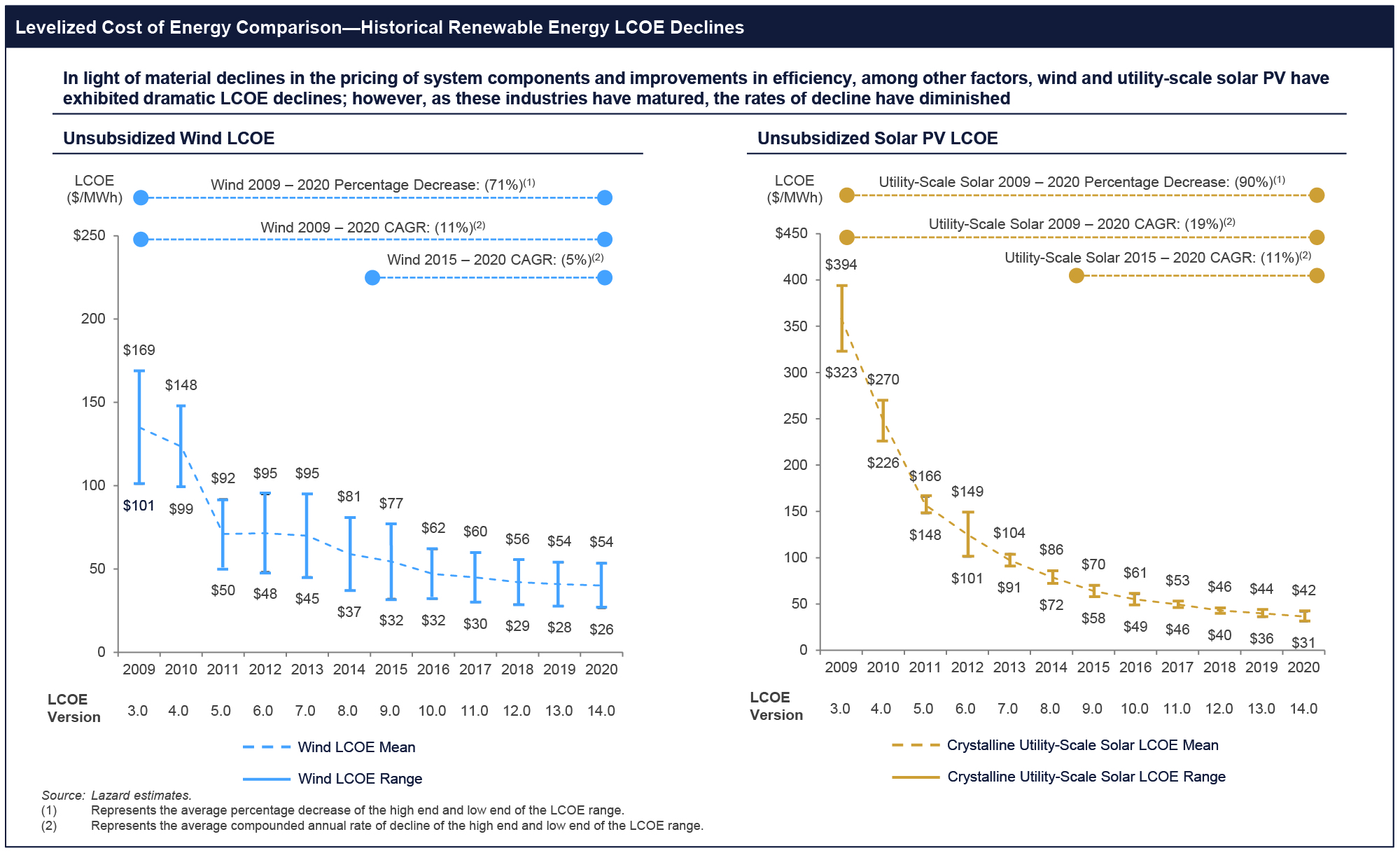
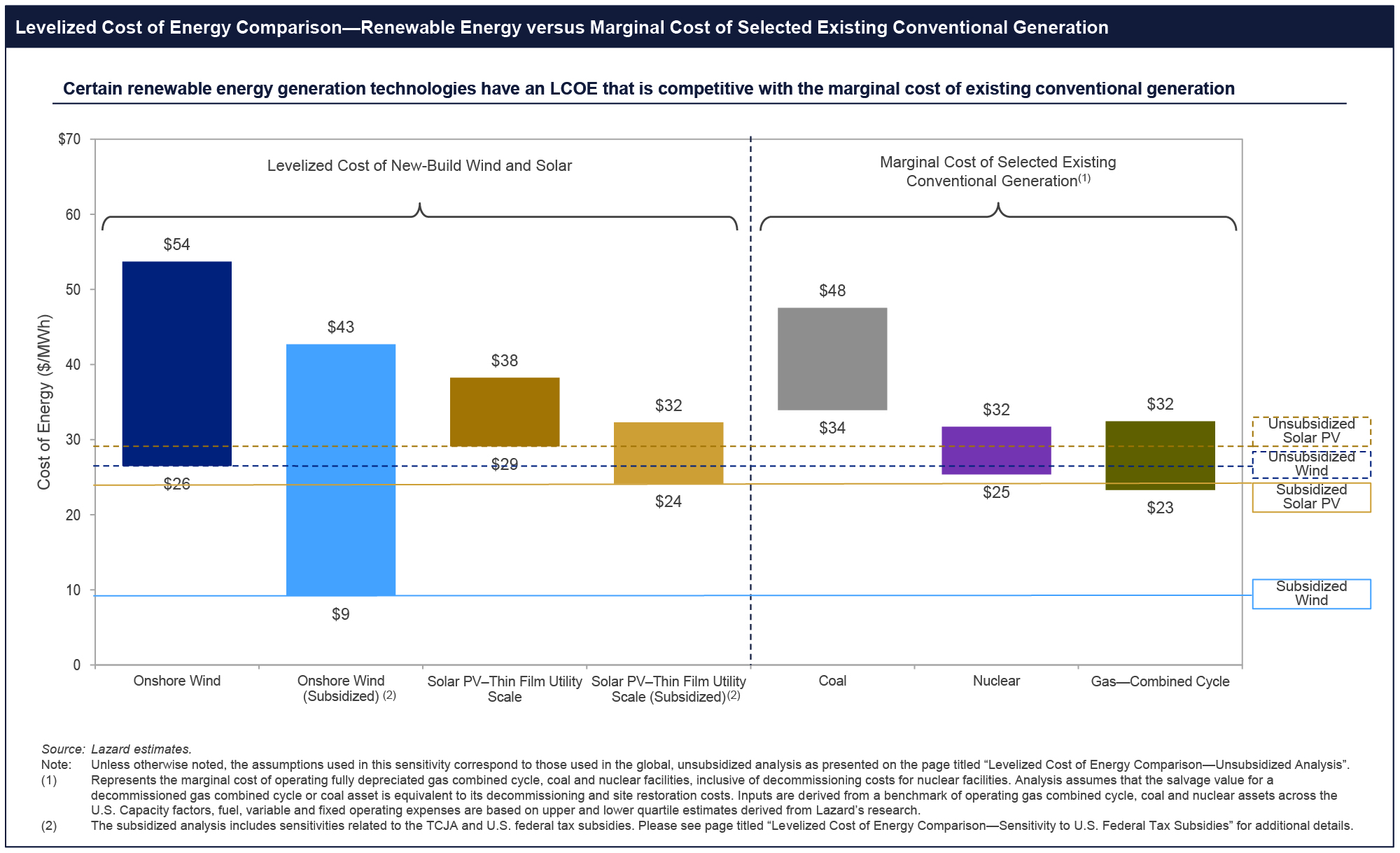
-
Iron Curtain still separates Russia and the EU - by Pepe Escobar
'When the European Union speaks as a superior, Russia wants to know: Can we do any business with the EU?' (AsiaTimes, October 21, 2020, Unpaywalled)

Soldiers destroy the Iron Curtain at Slovakian city (now capital) Bratislava, on December 11, 1989. Photo: AFP Sergey Lavrov, not merely Russia’s foreign minister, is the world’s foremost diplomat. The son of an Armenian father and a Russian mother, he’s simply on another level altogether. Here, once again, we may be able to see why.
Let’s start with the annual meeting of the Valdai Club, Russia’s premier think tank. Here’s the must-watch presentation of the Valdai annual report on “The Utopia of a Diverse World,” featuring, among others, Lavrov, John Mearsheimer of the University of Chicago, Dominic Lieven of the University of Cambridge and Yuri Slezkine of UCLA/Berkeley.
It’s a rarity nowadays to be able to share peak-level serious political debate. We have, for instance, Lieven – who, half in jest, defines the Valdai report as “Tolstoyian, a little anarchical” – focusing on the current top two, great interlocking challenges: climate change and the fact that “350 years of Western and 250 years of Anglo-American predominance are coming to an end.”
As we see the “present world order fading in front of our eyes,” Lieven notes a sort of “revenge of the Third World.” But then, alas, Western prejudice sets in, as he defines China reductively as a “challenge.”
Mearsheimer neatly remembers that we have lived, successively, under a bipolar, a unipolar and now a multipolar world: With China, Russia and the United States, “Great Power Politics is back on the table.”
After the dire experience of the “century of humiliation,” he correctly assesses, “the Chinese will make sure they are really powerful.” And that will set the stage for the US to deploy a “highly aggressive containment policy,” just as it did against the USSR, a policy that “may well end up in a shooting match.”
‘Trust Arnold more than the EU’
Lavrov, in his introductory remarks, explained that in realpolitik terms, the world “cannot be run from one center alone” – and took time to stress the “meticulous, lengthy and sometimes ungrateful” work of diplomacy.
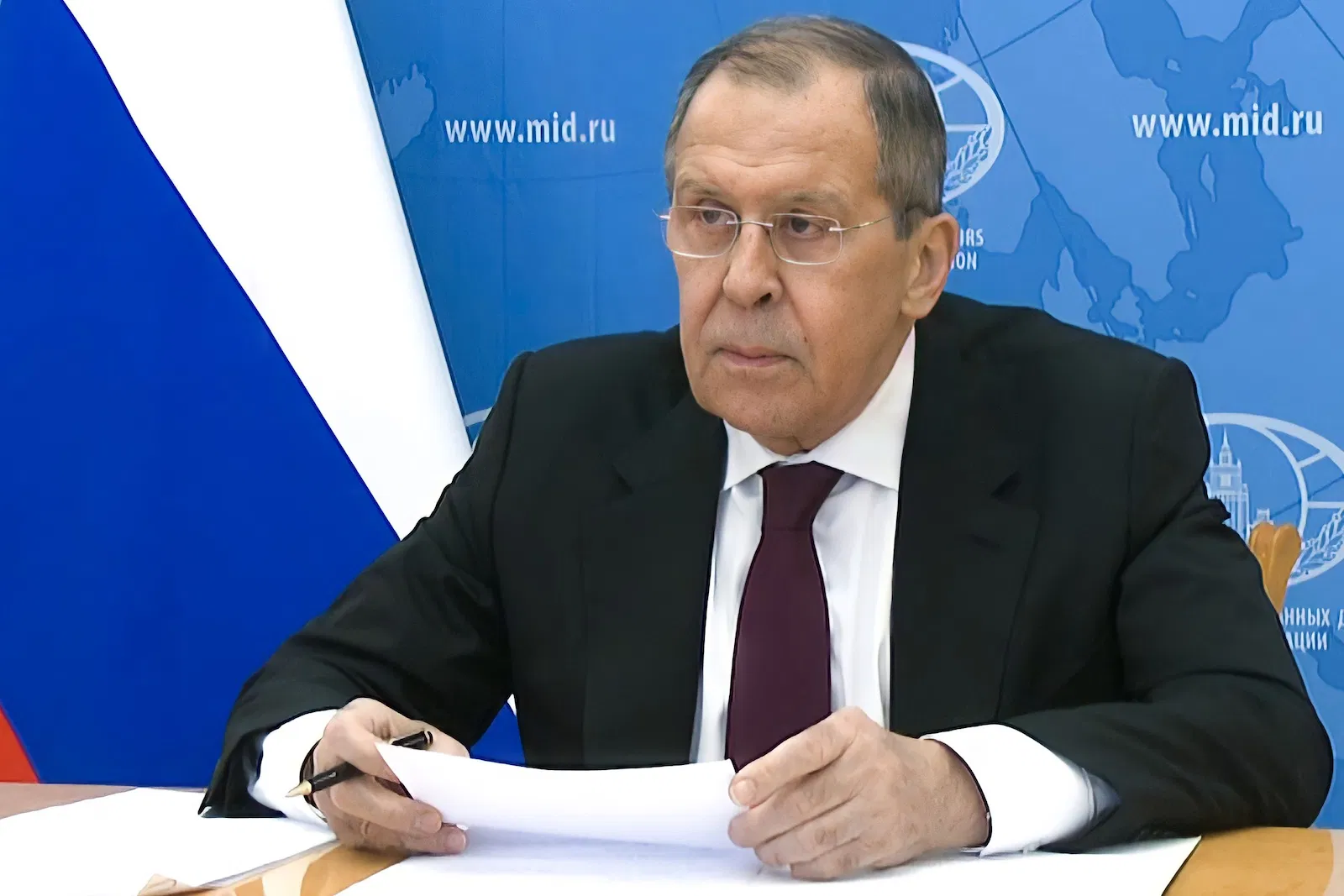
Russian Foreign Minister Sergey Lavrov at an October 10 meeting of the United Nations Security Council, via teleconference call in Moscow. Photo: AFP/Russian Foreign Ministry It is later, in one of his interventions, that he unleashes the real bombshell (starting at 1:15:55; in Russian, overdubbed in English): “When the European Union speaks as a superior, Russia wants to know: Can we do any business with Europe?”
He mischievously quotes Schwarzenegger, “who in his movies always said ‘Trust me.’ So I trust Arnold more than the European Union.”
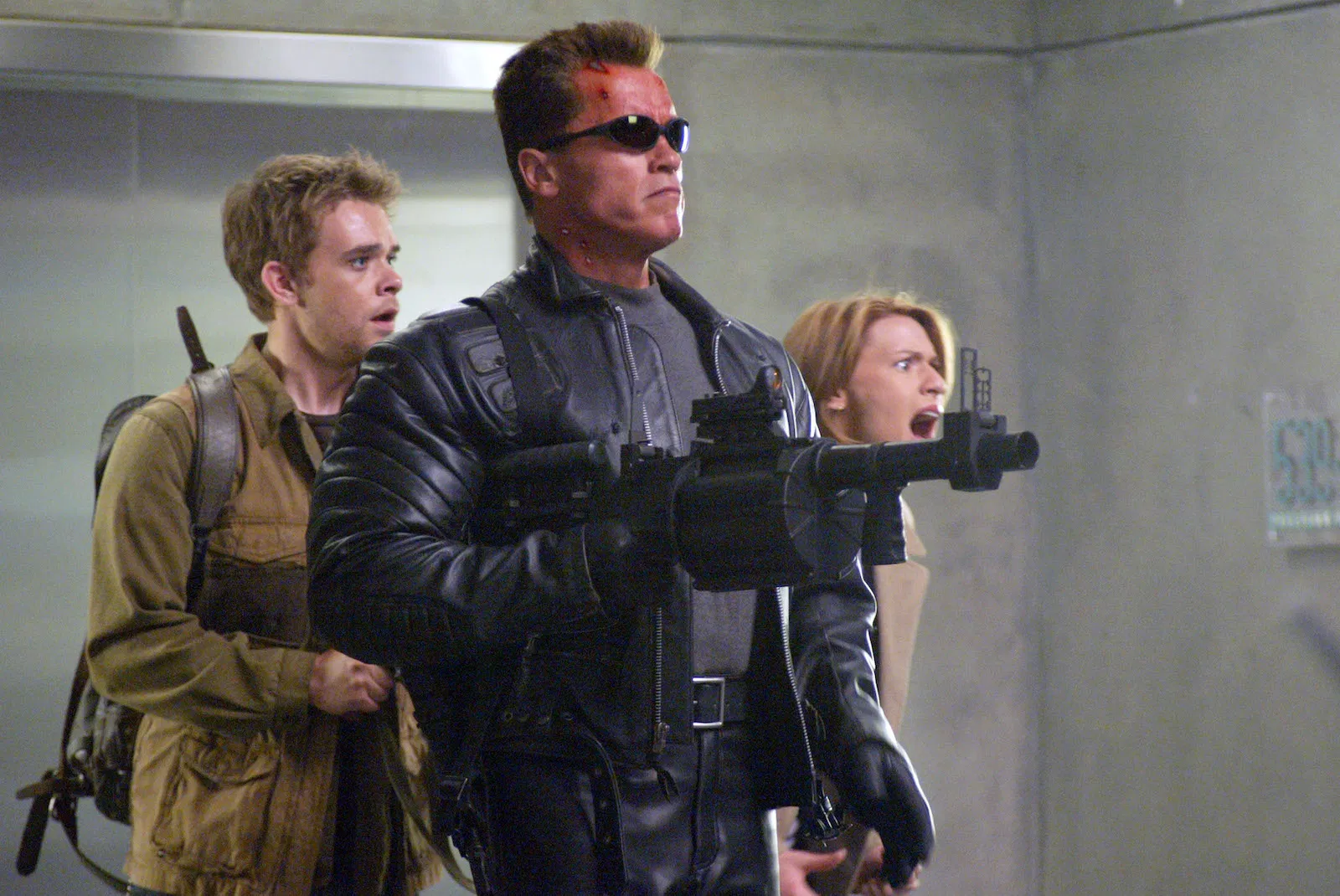
Arnold Schwarztenegger in Terminator 3, with Nick Stahl and Claire Danes. Photo: AFP/Collection Christophel © C2 Pictures/Intermedia Films And that leads to the punchline: “The people who are responsible for foreign policy in the West do not understand the necessity of mutual respect in dialogue. And then probably for some time we have to stop talking to them.”
After all, European Commission president Ursula von der Leyen has stated on the record that, for the EU, “there is no geopolitical partnership with modern Russia.”

European Commission President Ursula von der Leyen at an EU Leaders Summit on coronavirus on October 15. Photo: AFP/Dursun Aydemir/Anadolu Agency Lavrov goes even farther in a stunning, wide-ranging interview with Russian radio stations, whose translation deserves to be carefully read in full. Here is just one of the most crucial snippets:
Lavrov: “No matter what we do, the West will try to hobble and restrain us, and undermine our efforts in the economy, politics and technology. These are all elements of one approach.”
Question: “Their national security strategy states that they will do so?”
Lavrov: “Of course it does, but it is articulated in a way that decent people can still let go unnoticed, but it is being implemented in a manner that is nothing short of outrageous.”
Question: “You, too, can articulate things in a way that is different from what you would really like to say, correct?”
Lavrov: “It’s the other way round. I can use the language I’m not usually using to get the point across. However, they clearly want to throw us off balance, and not only by direct attacks on Russia in all possible and conceivable spheres by way of unscrupulous competition, illegitimate sanctions and the like, but also by unbalancing the situation near our borders, thus preventing us from focusing on creative activities. Nevertheless, regardless of the human instincts and the temptations to respond in the same vein, I’m convinced that we must abide by international law.”
Moscow stands unconditionally by international law – in contrast with the proverbial “rules of the liberal international order” jargon that is parroted by NATO and its minions such as the Atlantic Council.
And here it is all over again, a report exhorting NATO to “Ramp up on Russia,” blasting Moscow’s “aggressive disinformation and propaganda campaigns against the West, and unchecked adventurism in the Middle East, Africa and Afghanistan.”
The Atlantic Council insists that those pesky Russians have once again defied “the international community, by using an illegal chemical weapon to poison opposition leader Alexei Navalny. NATO’s failure to halt Russia’s aggressive behavior puts the future of the liberal international order at risk.”
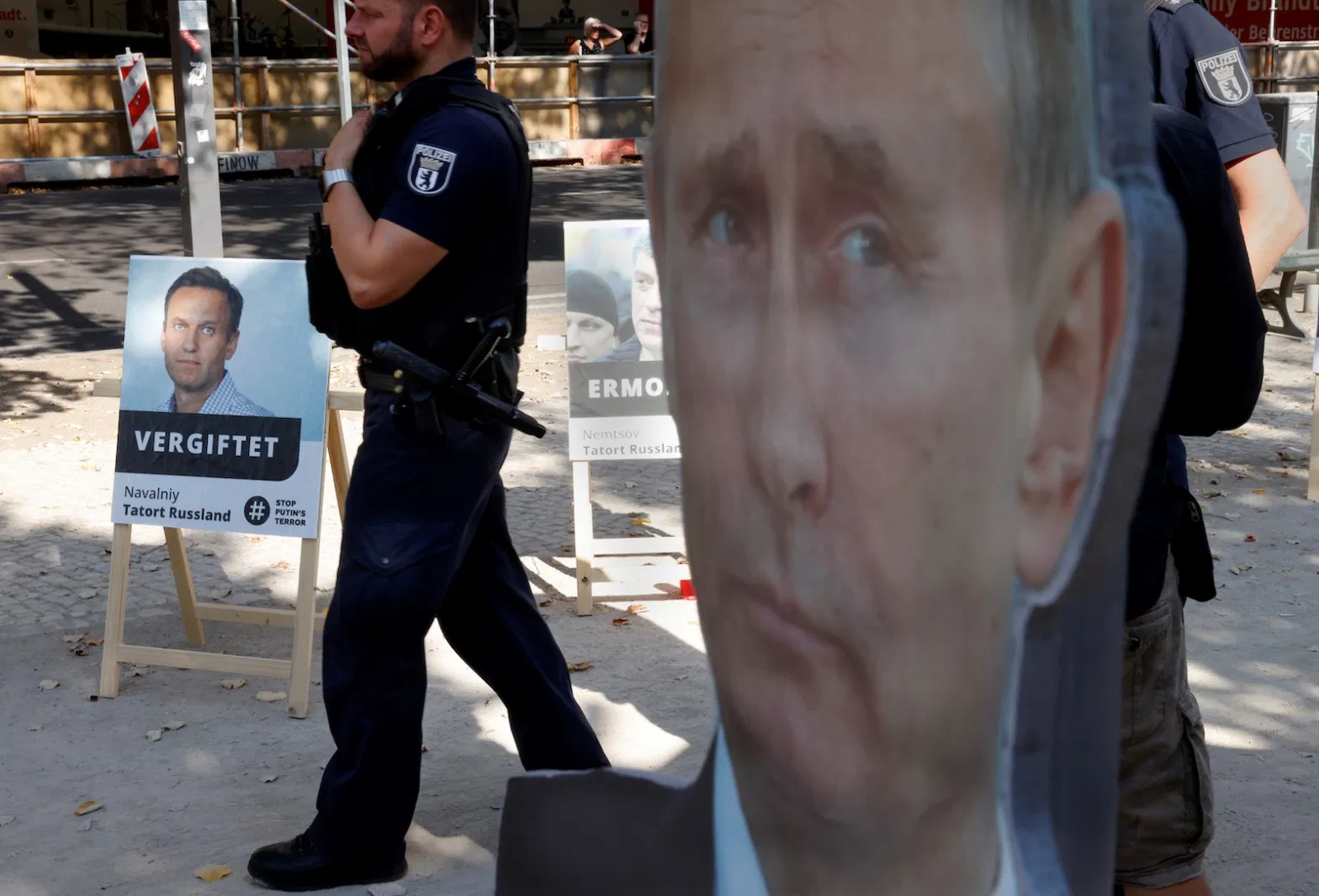
A poster with a picture of Russian opposition leader Alexei Navalny (L) with the headline ‘poisoned’ is seen near an effigy of President Vladimir Putin outside the Russian embassy on Unter den Linden in Berlin during an anti-government protest on September 23. Photo: AFP/Odd Andersen Only fools falling for the blind-leading-the-blind syndrome don’t know that these liberal order “rules” are set by the hegemon alone, and can be changed in a flash according to the hegemon’s whims.
So it’s no wonder that a running joke in Moscow is: “If you don’t listen to Lavrov, you will listen to Shoigu.” Sergey Shoigu is Russia’s minister of defense, supervising those hypersonic weapons that the US military-industrial complex can only dream about.
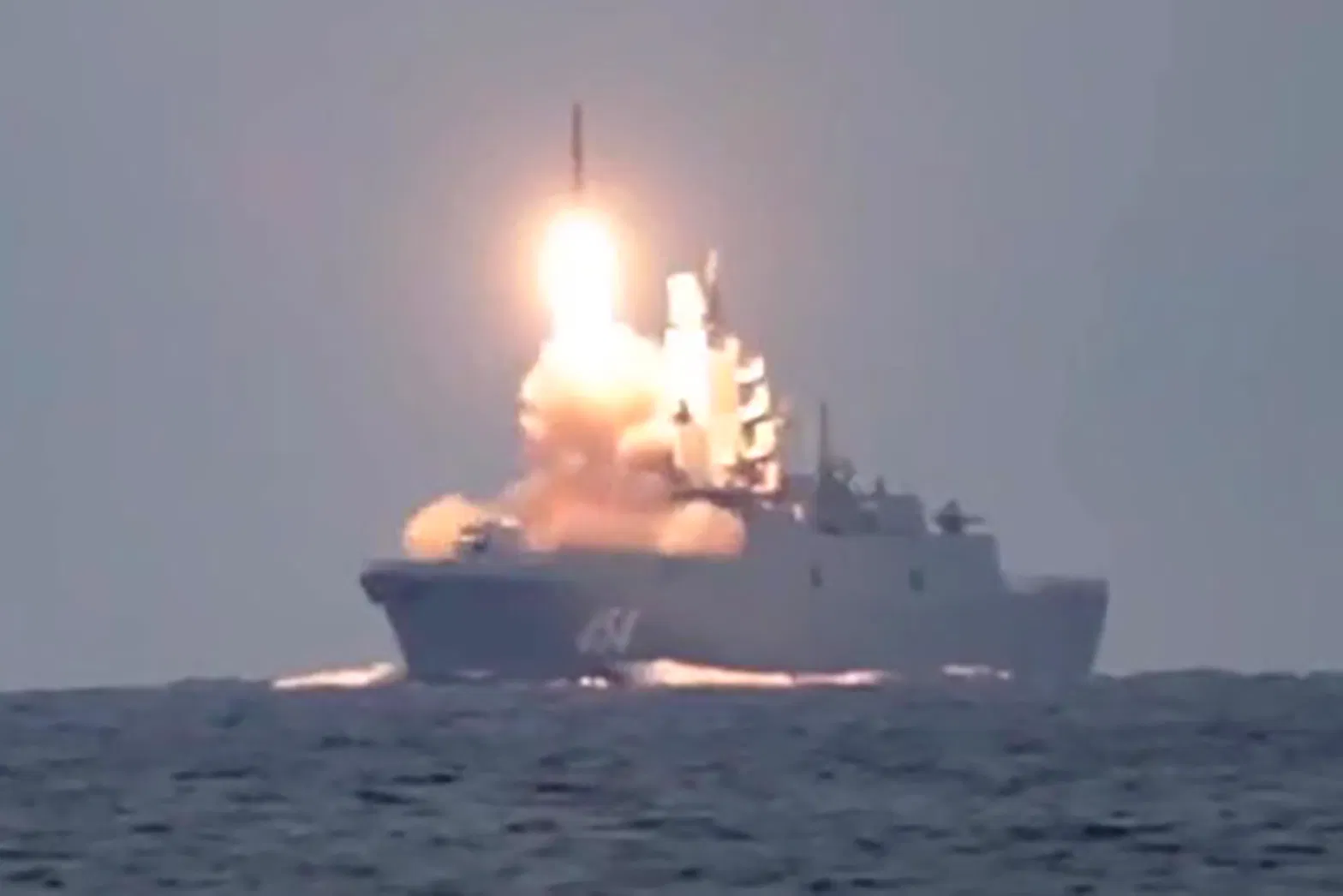
Russia’s Admiral Gorshkov frigate on October 7 launches the Zircon hypersonic cruise missile from the White Sea at a target in the Barents Sea, Russia. AFP/Russian Defence Ministry The crucial point is that, even with so much NATO-engendered hysteria, Moscow could not give a damn thanks to its de facto military supremacy. And that freaks Washington and Brussels out even more.
What’s left are hybrid war eruptions following the RAND Corporation-prescribed non-stop harassment and “unbalancing” of Russia, in Belarus, the southern Caucasus and Kyrgyzstan – complete with sanctions on Lukashenko and on Kremlin officials for the alleged Navalny poisoning.
‘Don’t negotiate with monkeys’
What Lavrov has just made quite explicit was a long time in the making. “Modern Russia” and the EU were born almost at the same time. On a personal note, I experienced it in an extraordinary fashion.
“Modern Russia” was born in December 1991 – when I was on the road in India, then Nepal and China. When I arrived in Moscow via the Trans-Siberian in February 1992, the USSR was no more. And then, flying back to Paris, I arrived in a European Union born in that same February.
One of Valdai’s leaders correctly argues that the daring concept of a “Europe stretching from Lisbon to Vladivostok” put forth by Gorbachev in 1989, right before the collapse of the USSR, unfortunately “had no document or agreement to back it up.”
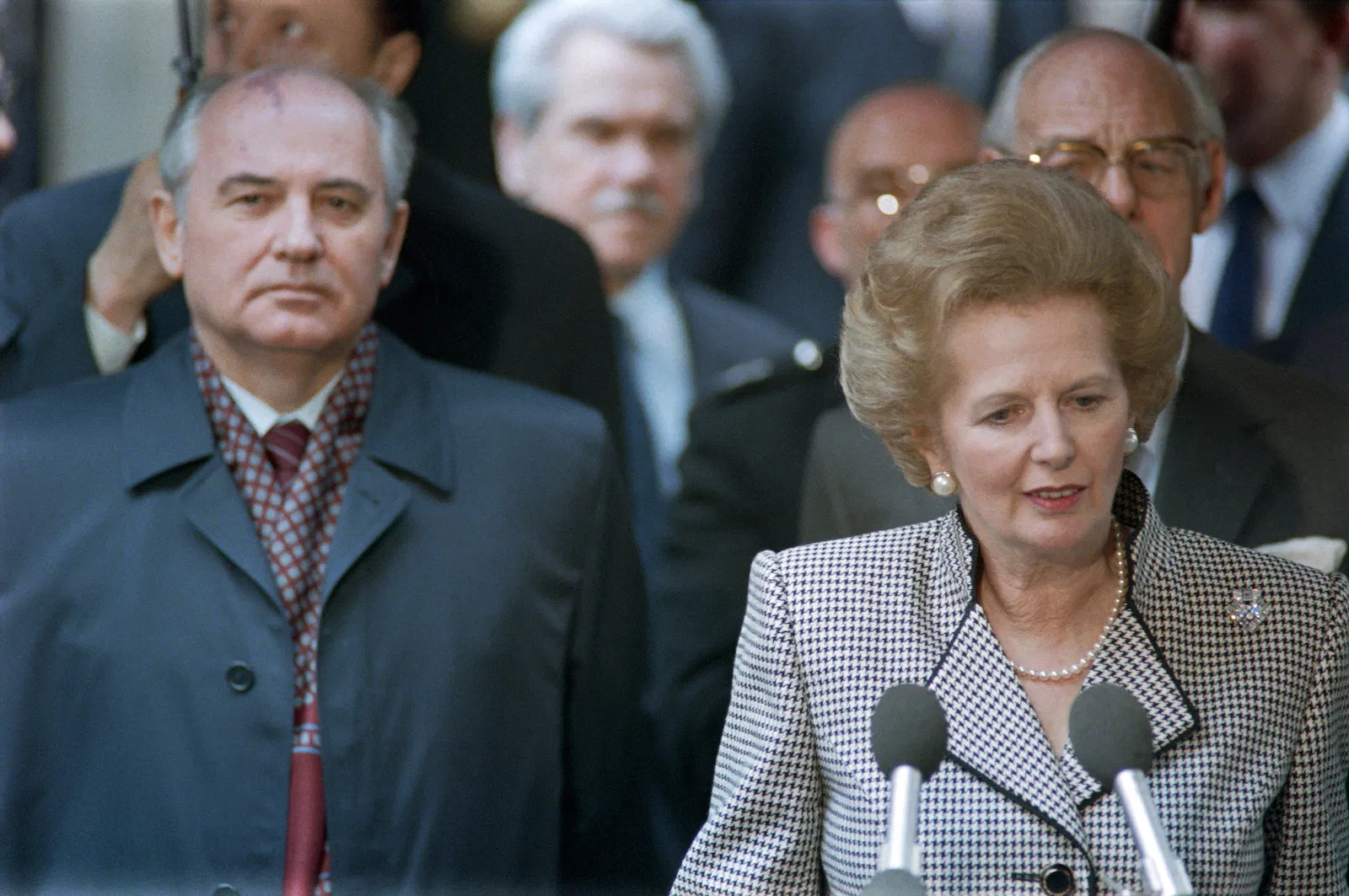
Soviet Leader Mikhail Gorbachev listens to British Prime Minister Margaret Thatcher’s speech in London on April 6, 1989, during a news conference outside 10 Downing Street after the two leaders’ last round of talks. Phoro: AFP/Georges Gobet And yes, “Putin searched diligently for an opportunity to implement the partnership with the EU and to further rapprochement. This continued from 2001 until as late as 2006.”
We all remember when Putin, in 2010, proposed exactly the same concept, a common house from Lisbon to Vladivostok, and was flatly rebuffed by the EU. It’s very important to remember that this was four years before the Chinese would finalize their own concept of the New Silk Roads.
Afterward, the only way was down. The final Russia-EU summit took place in Brussels in January 2014 – an eternity ago in politics.
The intellectual firepower gathered at the Valdai is very much aware that the Iron Curtain 2.0 between Russia and the EU simply won’t disappear.
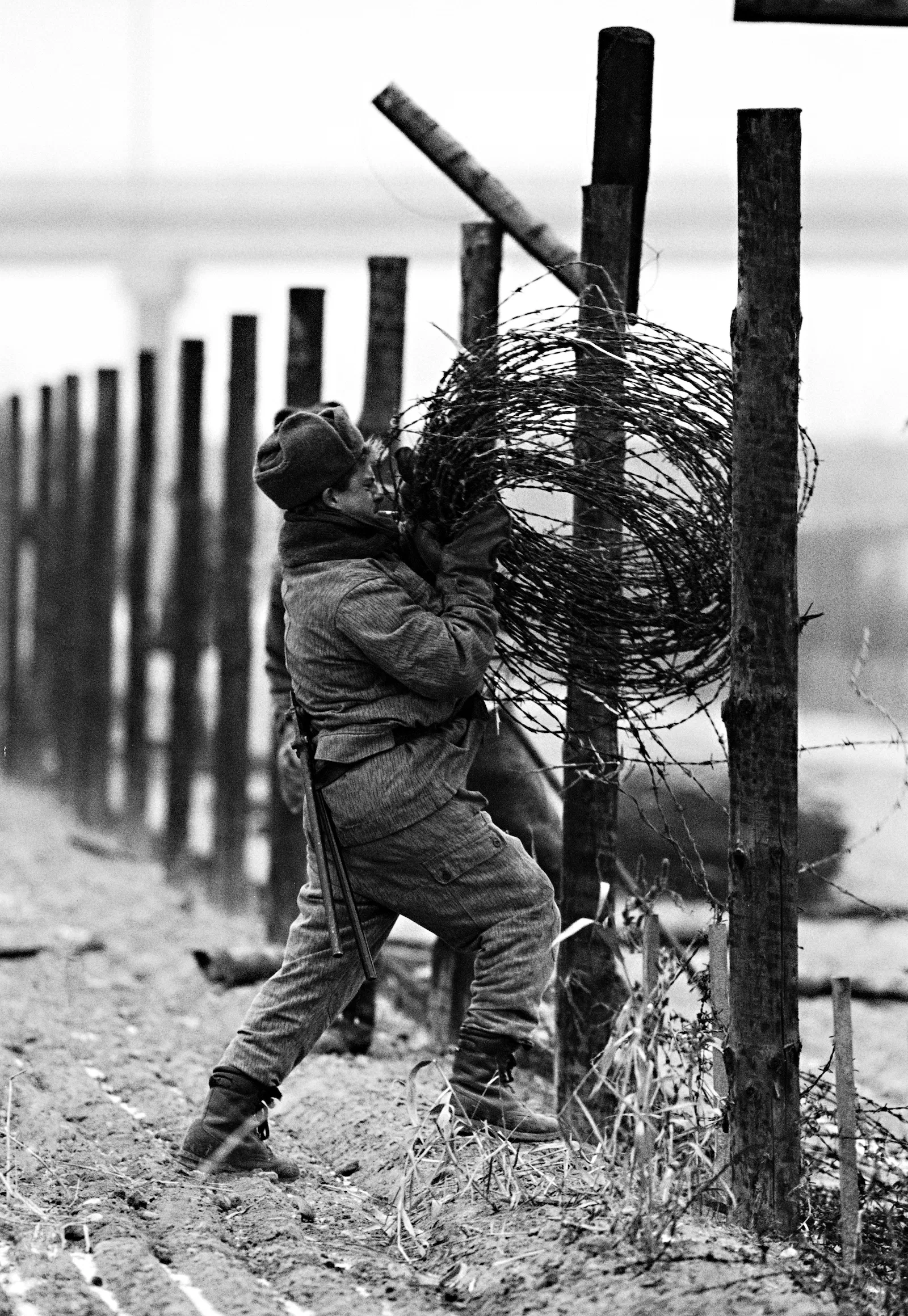
Soldiers destroy the Iron Curtain at Bratislava on December 11, 1989. Photo: AFP And all this while the IMF, The Economist and even that Thucydides fallacy proponent admit that China is already, in fact, the world’s top economy.
Russia and China share an enormously long border. They are engaged in a complex, multi-vector “comprehensive strategic partnership.” That did not develop because the estrangement between Russia and the EU/NATO forced Moscow to pivot East, but mostly because the alliance between the world’s neighboring top economic power and top military power makes total Eurasian sense – geopolitically and geoeconomically.
And that totally corroborates Lieven’s diagnosis of the end of “250 years of Anglo-American predominance.”
It was up to that inestimably smart military analyst Andrey Martyanov, whose latest book I reviewed as a must-read, to come up with the utmost deliciously devastating assessment of Lavrov’s “We had enough” moment:
Any professional discussion between Lavrov and amateurs such as the EU’s von der Leyen or Germany’s Foreign Minister Maas, who is a lawyer and a party worm of German politics, is a waste of time. Western “elites” and “intellectuals” are simply on a different, much lower level, said Lavrov.
They want to have their Navalny as their toy – let them.
I call on Russia to start wrapping economic activity up with the EU for a long time. They buy Russia’s hydrocarbons and high tech, fine. Other than that, any other activity should be dramatically reduced and the necessity of the Iron Curtain must not be doubted anymore.
As much as Washington is not “agreement-capable,” in the words of President Putin, the same goes for the EU, says Lavrov: “We should stop trying to orient ourselves toward European partners, stop trying to care about their assessments.”
Not only Russia knows it: the overwhelming majority of the Global South also knows it.
-
Zoom Is Now Worth More Than ExxonMobil (forbes)
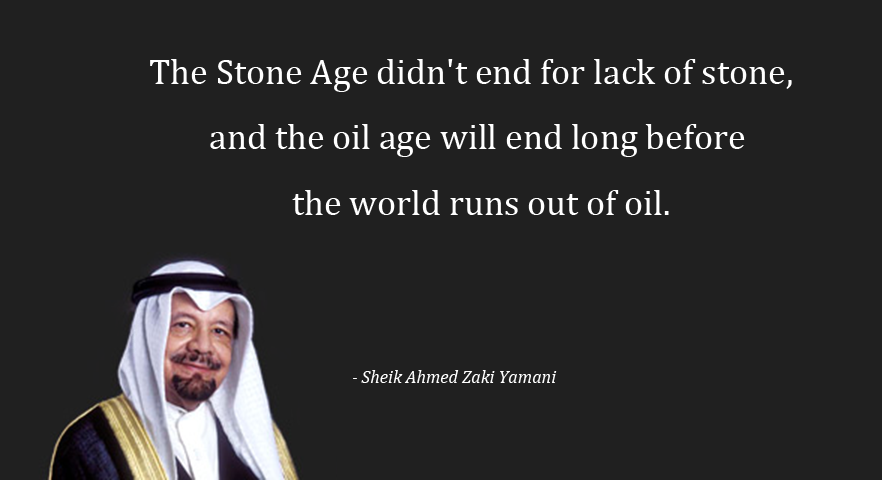
#Comment: The end of the oil age is finally here. Once this rally picks up speed, anything and everything deeply invested in the old fossil fuels economy will be trending towards zero. (and no, Zoom is not magically becoming more valuable - its over hyped commodity software)
-
Poor hospitality: Hotel owners in big cities hit major tipping point - "Hotel closures, layoffs and debt struggles in leading markets signal more bad news to come"
#Comment: The corona world is a giant party for the owner class, and a blood bath for everyone else. It will make the kleptocrats 2008 bank-robbery look like charity in comparison.
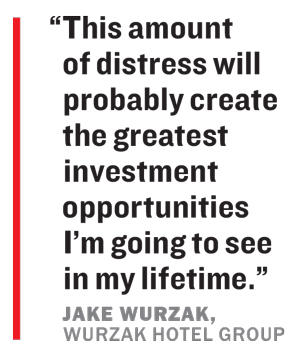
-
Three Rockefellers Say Banks Must Stop Financing Fossil Fuels (nytimes)
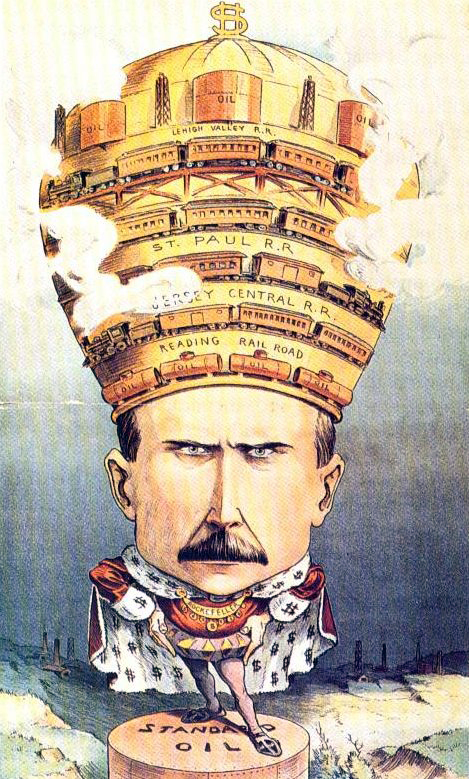
"Since 2016, 35 banks have funneled $2.7 trillion into fossil fuel companies and projects, a trajectory that will guarantee a world with runaway climate disruption. Of these banks, JPMorgan Chase has led the way by providing 36 percent more financing than the next largest fossil fuel financier, Wells Fargo."
#Comment: Hilarious to see the same families who over 100+ years were primary drivers and profiteers of the industrial-scale exploitation and destruction of nature (incl. humanity), are now starting to say "end fossil fuels". What we'll likely never hear them say is "we take responsibility for the mess we created and will pay for it adequately now" or "we were and are highly incompetent and thus make room for others". On the contrary, they are tirelessly strategising how to dominate the emerging renewable age by any means. A dark bullshit comedy.
-
Daimler Trucks partners with Waymo to build self-driving semi trucks
#Comment: Here we go. As I've been predicting for years, the German car industry is totally clueless and will cheaply give away control over the brains of next-gen cars to silicon valley. In turn, that will guaranteed downgrade the entire industry to OEM's that just produce fancy metal boxes, while the real value is captured else where. Sehr peinlich und sehr lustig!
-
55% of Small and Medium Firms in Europe Expect to Shut Down by September Next Year if Things Stay as They Are - Together they employ two-thirds of European workers. (reuters)
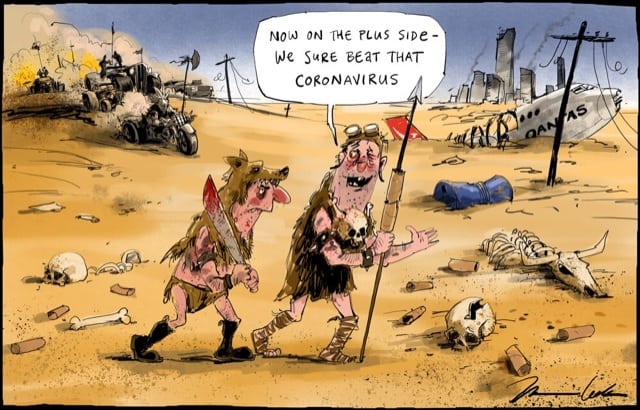
-
Billionaires' wealth rises to $10.2 trillion amid Covid crisis
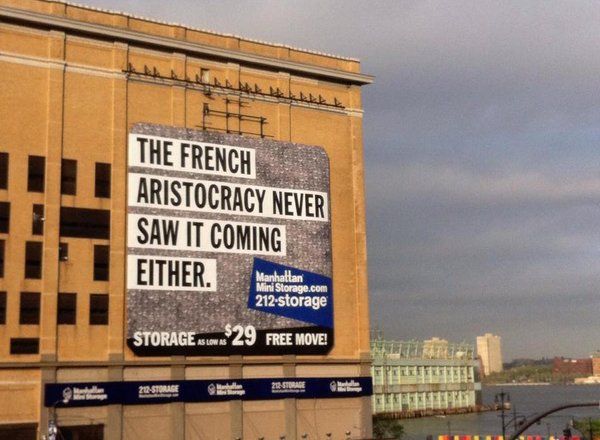
#Comment: Predictably the super-rich increased their already perverse fortunes by more than a quarter in 2020. At this point, the global kleptocrat class is truly above and beyond sanity. As their sense of omnipotence keeps growing exponentially, they can't seem to hear the sound of people around the world preparing the guillotines for them. Once the impact of corona fully unfolds (corona is a most convenient shield for the kleptocrats, allowing them to pretend that they did not cause this crisis through the usual means - greed and stupidity - but its all due to a evil virus), the anger in western economies will be uncontrollable, even for a modern cybernetic surveillance police state. A real shame, as a solution without violence is preferable for all.
-
Apple, Google and a Deal That Controls the Internet (nytimes)
"Nearly half of Google’s search traffic now comes from Apple devices, according to the Justice Department, and the prospect of losing the Apple deal has been described as a “code red” scenario inside the company."
"Apple now receives an estimated $8 billion to $12 billion in annual payments — up from $1 billion a year in 2014 — in exchange for building Google’s search engine into its products. It is probably the single biggest payment that Google makes to anyone and accounts for 14 to 21 percent of Apple’s annual profits."
“If we just sort of merged the two companies, we could just call them AppleGoo,” joked Mr. Schmidt, who was also on Apple’s board of directors. With Google search on the iPhone, he added, “you can actually merge without merging.”
-
Gitlab Blocked Iranians’ Access
#Comment: Weaponising open source is a new low, even for this particularly clueless US regime. But this is really only meaningful in the short-term. In the mid-term (2030ish), the tech game is very likely to have drastically changed: Other countries will have taken the technological lead (china & co), while the US is still engaged in endless internal conflicts (in effect a mafia-state, akin to what happened in Russia after 1990). All the global talent that once powered the US tech innovation motor (droves of Chinese, Indian, Russian and European PhD students etc.) will have disappeared. At that point, we might see headlines along the lines of "Globally leading open source platform Gitea blocked US access". Personally, i would prefer to see yet another scenario, where the entire global Intellectual Property market collapsed and was replace by "open source everything" - but that might be a more long term vision.
-
Proposed Chinese Law Outlaws All Yuan-Pegged Tokens – Except for Its CBDC
A proposed Chinese law would ban stablecoins – yuan-pegged tokens – except for the central bank’s digital currency, popularly known as the digital yuan. The People’s Bank of China (PBoC) aims to provide greater legal clarity to the regulation of its national virtual currency.
-
“It's called 'the American Dream' 'cause you have to be asleep to believe it.” - George Carlin
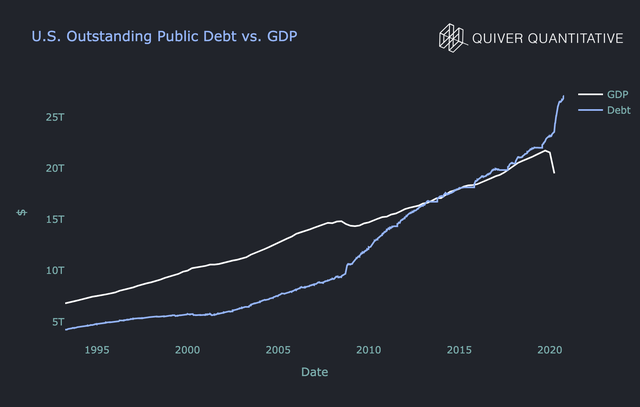
-
From Follower To Leader: The Story Of China’s Rise - short talk by Martin Jacques
-
World’s biggest wind and solar producer now worth more than ExxonMobil
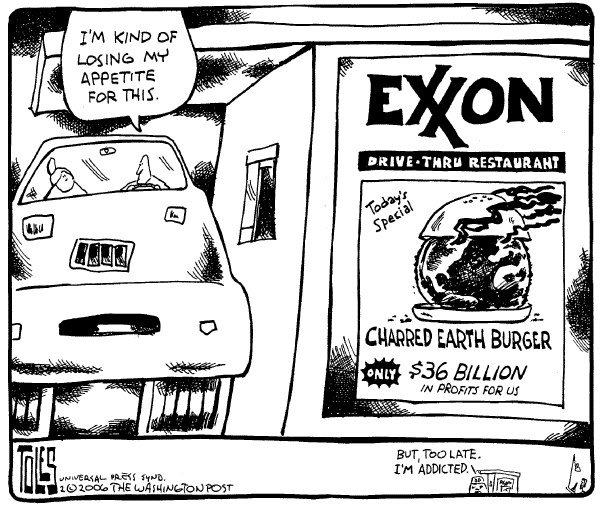
In yet another sign of the pace of the global energy transition – and the massive switch taking place in the investment community – the market value of company that describes itself as the world’s biggest producer of wind and solar power, US utility NextEra, has overtaken that of what used to be the world’s most valuable company, oil major ExxonMobil. The flip occurred last last week, when NextEra overtook ExxonMobil to become the largest energy company in the US by market value.
Exxon’s Plan for Surging Carbon Emissions Revealed in Leaked Documents
Internal projections from one of world’s largest oil producers show an increase in its enormous contribution to global warming
-
European Central Bank - Report on a digital euro
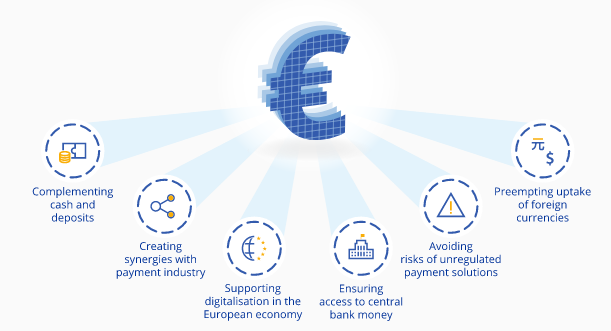
This report examines the issuance of a central bank digital currency (CBDC) – the digital euro – from the perspective of the Eurosystem. Such a digital euro can be understood as central bank money offered in digital form for use by citizens and businesses for their retail payments. It would complement the current offering of cash and wholesale central bank deposits.
-
The early signs of incoming economic system changes
